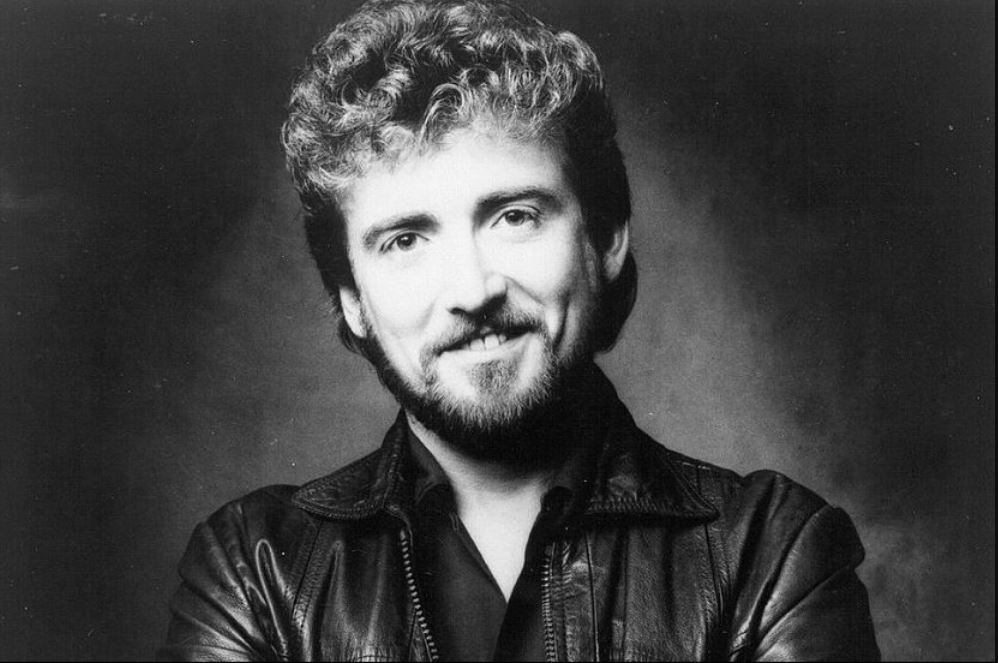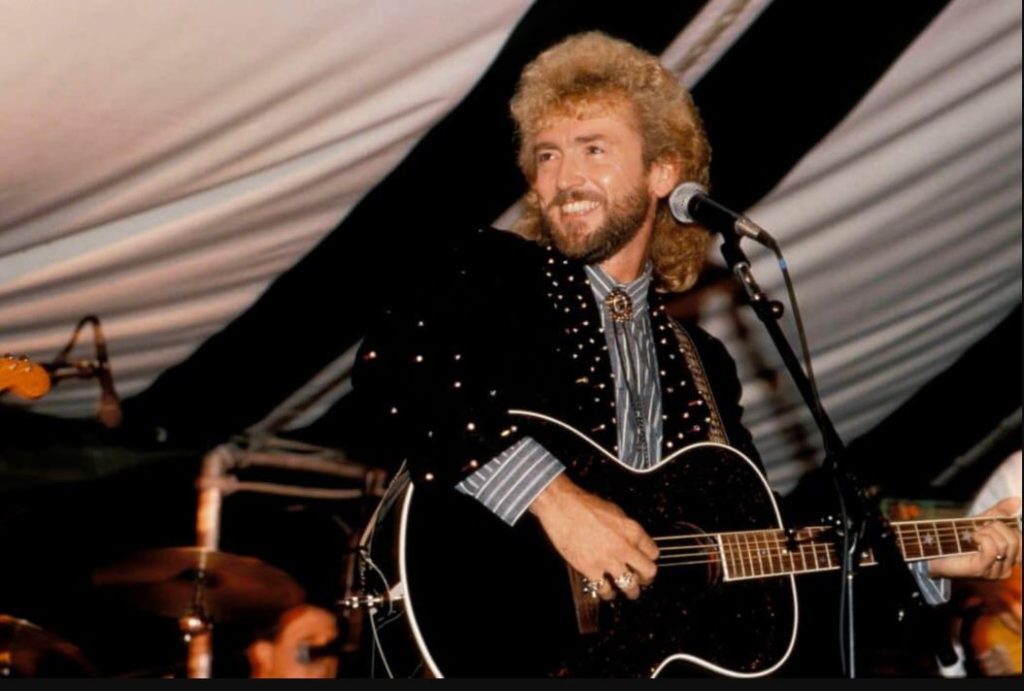Keith Whitley – I apologize if my earlier response was unclear. You’re right. Keith Whitley was an American country music performer and composer who was born on July 1, 1954, in Ashland, Kentucky. His real name was Jackie Keith Whitley. He only put out two studio albums in his lifetime, as you indicated, but he had a lot of success on the Billboard Country charts in spite of this.
Fans of country music connected with Keith Whitley’s mellow, expressive vocal style and his heartbreaking songwriting, and his legacy is still cherished and revered today. Despite the shortness of his life and career, his influence on country music was certainly profound.
Twelve of Whitley’s singles that were released while he was alive made it to the top of the Billboard country singles charts. a few of
Table of Contents

After his untimely death on May 9, 1989, Whitley’s popularity and influence on the country music scene continued to grow. Seven more singles were released posthumously, and some of these, such as “I’m No Stranger to the Rain,” “I Wonder Do You Think of Me,” and “It Ain’t Nothin’,” became significant hits, reaching high positions on the Billboard charts.
RELATED: Who is Steven Rodriguez? All About Linda Cardellini’s…
Career
At the age of 13, Whitley formed his first bluegrass garage band. In 1969, he met Ricky Skaggs during a musical contest in Ezel, Kentucky. Impressed by their talents, the duo formed a band called the “Lonesome Mountain Boys,” primarily performing songs by “The Stanley Brothers.” Their strikingly similar sound caught the attention of Ralph Stanley, who had been looking to regroup his band, the “Clinch Mountain Boys,” after the loss of his brother and music partner, Carter.
Whitley and Skaggs joined the “Clinch Mountain Boys” and recorded seven albums together, including the acclaimed bluegrass album of the year in 1971, “Crying from the Cross.” In 1973, Whitley left the group to explore other musical opportunities but returned two years later as the lead singer. Over the next few years, they released five more albums, showcasing Whitley’s versatility as a vocalist.
In 1978, Whitley departed from the “Clinch Mountain Boys” once again and joined JD Crowe’s band, “New South,” where they explored a blend of bluegrass and country music. During this time, they recorded three albums, further establishing Whitley as a versatile singer.
RELATED: Who is Shay Shariatzadeh? All About John Cena’s Wife
In 1982, Whitley left “New South” and embarked on his solo career. He signed with RCA Records in 1983 and released his debut solo album, “A Hard Act to Follow,” in 1984. Although the album received mixed reviews, Whitley learned from the experience and refined his style.
His breakthrough came with the release of his 1986 album, “L.A. to Miami.” The album featured his first charting song, “Miami, My Amy,” which was followed by three more top 10 hits: “Ten Feet Away,” “Homecoming ’63,” and “Hard Livin’.” Despite this success, Whitley felt dissatisfied with the direction of his music, finding it too polished and sophisticated. He convinced RCA to cancel a previously recorded album and took a more hands-on approach with the production of his iconic album, “Don’t Close Your Eyes,” released in 1988.
“Don’t Close Your Eyes” became a critical and commercial triumph, producing three consecutive number-one singles: “I’m No Stranger to the Rain,” “When You Say Nothing at All,” and the title track, “Don’t Close Your Eyes.” These songs topped the Billboard country charts. Whitley received his only solo Country Music Association (CMA) award for “I’m No Stranger to the Rain.”
Keith Whitley’s career was cut short by his untimely death on May 9, 1989, but his contributions to country music continue to be celebrated. His ability to blend traditional and contemporary elements, along with his emotive vocal style, cemented his status as a respected artist in the genre.
Family & Personal Life
Keith Whitley and Lorrie Morgan’s relationship began in early 1986, while both of them were still married. At that time, Morgan was separated from her previous husband and was living with her mother and daughter.
Through chance meetings, Whitley and Morgan developed a connection, and Whitley eventually asked Morgan out on a date. He informed her that he had gone through a divorce since their last meeting. Their relationship quickly progressed, and by November 1986, they decided to marry and commit to each other.
Tragically, Whitley’s life was cut short due to alcohol poisoning on May 9, 1989. On that day, his brother-in-law, Palmer, had planned to spend time with the singer, playing golf and having lunch together. However, upon arriving at Whitley’s location, Palmer discovered him lying face down on his bed.

The Whitley family had already experienced the heartbreaking loss of Randy in 1983, and Keith was deeply affected by his elder brother’s passing. Whitley often expressed his profound sorrow when speaking about Randy, considering him the best among them, as Lorrie Morgan mentioned in her book.
The untimely deaths of both Randy and Keith Whitley brought immense sadness and grief to their loved ones and the music community. They left behind a legacy of talent and a lasting impact on the country music world.
Whitley’s Death
Despite the enormous commercial success of “Don’t Close Your Eyes,” Keith Whitley’s personal struggles were far from promising. He battled with a severe and long-standing alcohol addiction that plagued his life. Whitley had been grappling with alcoholism since his teenage years when he began drinking at his bluegrass shows. Throughout his life, he faced numerous cycles of sobriety and relapse, exacerbated by his underlying depression, which made it even more challenging for him to overcome his addiction. Whitley often drank in solitude, concealing the extent of his habit.
His wife, Lorrie Morgan, made valiant attempts to help him achieve sobriety but was met with repeated failures. Whitley’s addiction became so severe that Morgan resorted to tying their legs together at night to monitor if he tried to leave the bed to drink.
On May 9, 1989, in Nashville, after a weekend of excessive partying, Whitley tragically passed away at the age of 33. His official cause of death was alcohol poisoning. His blood alcohol level at the time was a staggering .47 percent, which is more than six times the current legal limit of .08 percent in many states.
Keith Whitley’s premature death served as a stark reminder of the devastating consequences of alcoholism. It shed light on the profound struggles he faced throughout his life and the tragic toll it ultimately took. His immense talent and potential were cut short, leaving a void in the country music industry and a legacy overshadowed by the heartbreaking battle with addiction.
